Photo by Zach Wallace
New Air finds Philadelphia’s Fire In The Radio pushing their unique brand of up-tempo indie-punk in a fresh direction incorporating elements of new wave, grunge, and shoegaze drone into tightly crafted pop songs. The result is a notably darker effort than 2015’s Telemetry, which was released to critical acclaim. It also proves to be the bands most ambitious and successful collection of songs to date.
From the driving beat and haunting oohs on the album’s opener and title track, to the head nodding rock anthem “Drug Life;” each of the songs on New Air reveal themselves in stark and immediate ways without meandering. Even on the album’s mid-tempo closer, “Holy Shit,” the pace and delivery of singer Rich Carbone’s vocals remain frenetic. And though Carbone hints at subtlety as he sings “carved your name on the wall, it’s buried in white, a ship for all seasons,” it’s all just a set up for the album’s blistering closing chorus replete with overlapping vocal and guitar lines.
New Air was recorded with Steve Poponi at Gradwell House studios (Beach Slang, Into It. Over It.) with additional engineering by Angus Cooke. The record was mixed by Jesse Gander (Japandroids, White Lung) and mastered by Alan Douches. Released May 5 via Wednesday Records, it is a banger of epic proportions that postures the band as one to be watch, if not in pole position for best album of the year.
Ghettoblaster caught up with the band to discuss their home city, working hard, and being impactful. This is what they said.
Philadelphia has been a hotbed for indie bands for several years. Does it make it difficult to differentiate yourself or standout when there is so much attention on your city?
We don’t think so. There is a lot of diversity in the music being made in the city. It has allowed us to carve out our own niche, while still being part of an overall scene that is supportive. Philadelphia has traditionally been a very blue collar town. We all grew up in that environment. When you see your parents working 12-15 hours a day to knock it out, it instills in you a sense that if you want to be good at what you do it requires hard work. A lot of the bands in Philadelphia grew up in that same environment. It shows in work that is being created and how it is being supported.
We recently read a well-publicized article of how rock and roll is, again, “dead.” We all just smiled. Apparently, the writer missed the two sold nights the Japandroids recently headlined at UT, or The Menziners/Jeff Rosenstock/Rozwell Kids show in Philly last month. It proves that if you create something genuine and honest there will always be an audience for it.
How soon after Telemetry did you begin writing for New Air?
Pretty much immediately. We had new songs in the works at the time we were making Telemetry that just were not developed enough to make the album. We started playing some of these songs on the Telemetry tour. Working them out in front of an audience helped us make them connect.
Was there a theme or idea you were hoping to capture with New Air? What were the catalysts that were going on in your lives that were inspiring the songs?
Through the writing process on this record we realized our songs were taking a darker shape touching on themes of loss, change, addiction, etc. Music is like therapy. You start at the surface and then dig deeper. The direction of these songs is largely a product of us opening up and getting more comfortable talking about these things. Losing friends to drug addiction and overdose inspired the song “Drug Life.” New Air was written in response to the current political climate in our country. Adeline deals with issues of mental health. All of these arose out of personal experiences that deeply affected us and it feels cathartic to write about them.
Were there things you were hoping would differentiate it from your past efforts?
We were certainly hoping for something more mature and evolved. We always like to challenge each other through the writing process. It’s very democratic. We tend to collaboratively obsess over the details, but there was also more communication and open-mindedness as to what each song could be.
You’ve incorporated some different elements here, including some new wave, shoegaze and grunge sounds. How did those influences leach in?
We’re fairly diverse in the music we listen to, both new and old. We often share what we’re listening to with one another. This broad base certainly influenced certain sounds and textures on the record. There is an amazing feeling when you hear a song that you love for the first time. There is a vibe and mood that draws you in. With this record, we started to look towards some of our favorite songs and reverse engineer them. We then tried to incorporate those elements into songs we were writing to make each song as impactful as possible.
How did you select the songs that would make the cut for the album?
We knew we wanted to make another full-length, but didn’t want to compromise the quality of the songs just to have 10 or 12 tracks. We really respect the people who support our music and always want to feel like we’re doing our best to write quality songs that people can relate to. We put our best seven songs into New Air and once we hit that number it felt like a complete thought.
For New Air you enlisted a special team to record, mix and master the album. All of those people seem like very deliberate, strategic choices. How did you select those folks to work this?
There was definitely some consideration put into who we would work with. We met Steve Poponi at the record release show for our last record. He was doing sound. We really liked him and wanted to work with him, so we ended up doing the underlying tracks for the record at his studio, Gradwell House. We did some additional tracks with Angus Cooke and then sent the record to Jesse Gander at Rain City Recorders in Vancouver to mix. Jesse did the last record. He’s a long-time friend and stellar engineer and did a great job. Alan Douches at West West Side mastered the record and made it sound brilliant per usual.
What elements of this record are you most proud of?
We really pushed ourselves on this record to improve the quality of our writing and dig deeper on the lyrical content. We’re all very close friends and proud of how we’ve worked together to make this music.
Are you doing some touring in support of New Air?
Yes, we head out for the first leg of tour starting in May. We’ll also be heading back to Fest 15 in the fall and doing a bunch of other touring in between. Come to our shows, say “hello.”
What are your loftiest goals for FITR as you move forward?
Lofty goals in the music industry in 2017 is an interesting concept. One thing people who support our band can count on is that we will only ever make music because we feel it is impactful. To be able to make music and have it connect and be meaningful to another person is why we do this. When people write to us and tell us that our songs mattered or helped them through a tough time, it means everything. It’s a privilege to gain that place of importance and we can only hope for more of the same.
Jawbreaker seems to be a pretty distinct influence of Fire In The Radio. Do you have feelings about the recent Riot Fest announcement?
It is certainly a band that we get compared to, which is a tremendous compliment. We have a huge amount of respect for Jawbreaker and the amazing records they’ve made. Their music has meant so much to so many. It’s exciting to see them return and have an opportunity to continue to share their art to a whole new audience. If we’re anywhere near Chicago in September, we’ll be there.
(Visit Fire In The Radio:
https://www.facebook.com/fireintheradio http://fireintheradio.tumblr.com/ https://twitter.com/FireIntheRadio http://instagram.com/fireintheradio https://fireintheradio.bandcamp.com/ https://soundcloud.com/fireintheradio
Catch Fire In The Radio live:
5.23 Providence, RI – Dusk
5.24 Brooklyn, NY – Alphaville
5.25 Lancaster, PA – Chameleon Club (Lizard Lounge)
5.26 Philadelphia, PA – Boot & Saddle)


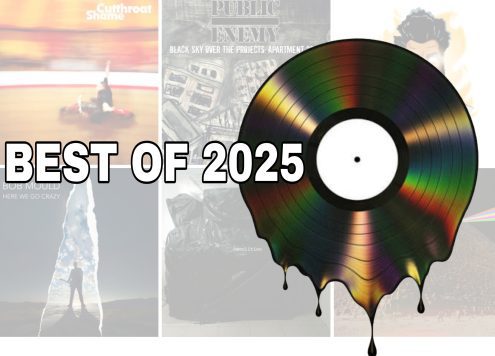

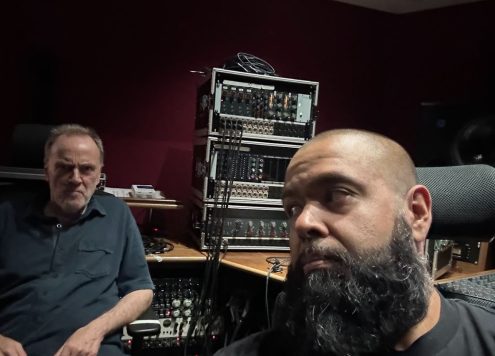
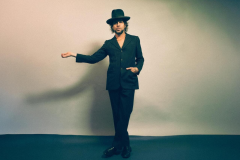
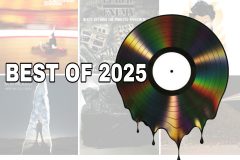
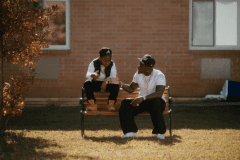
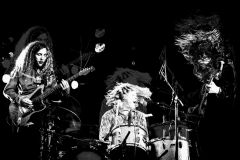

Social Media